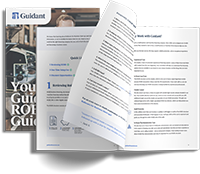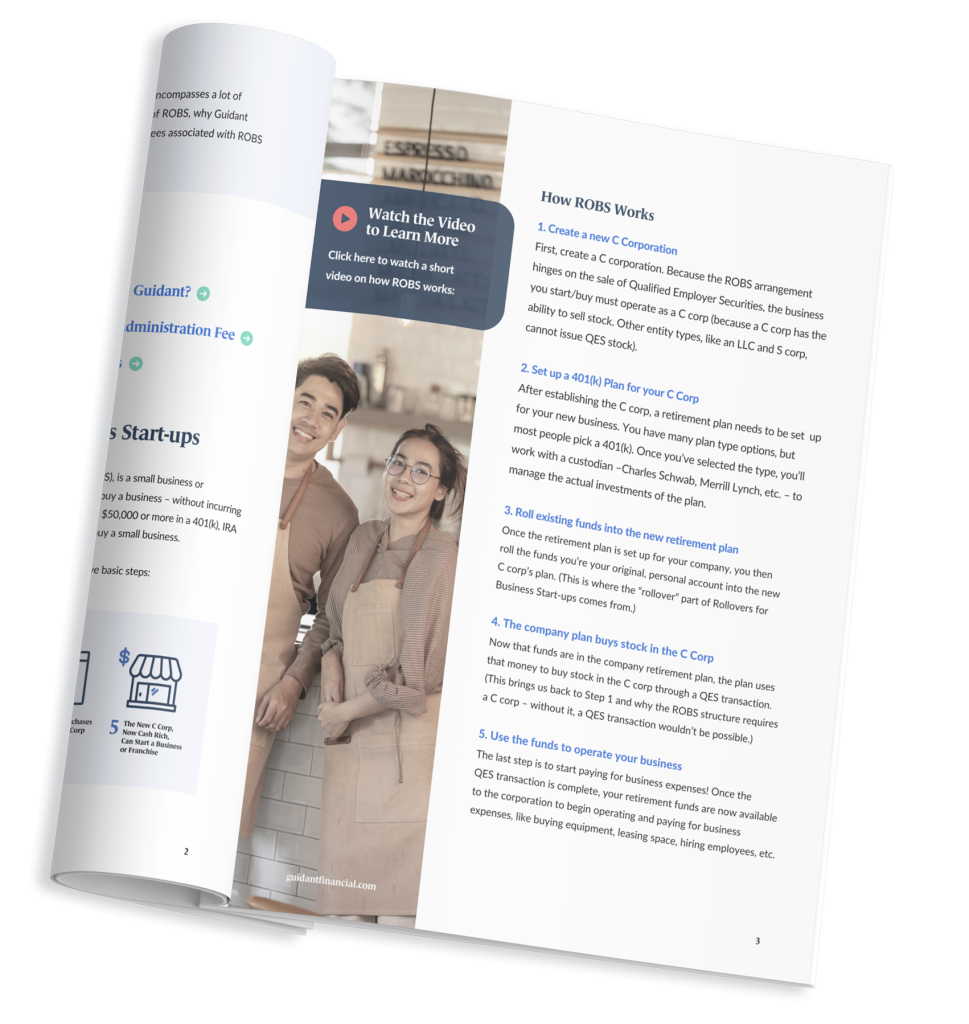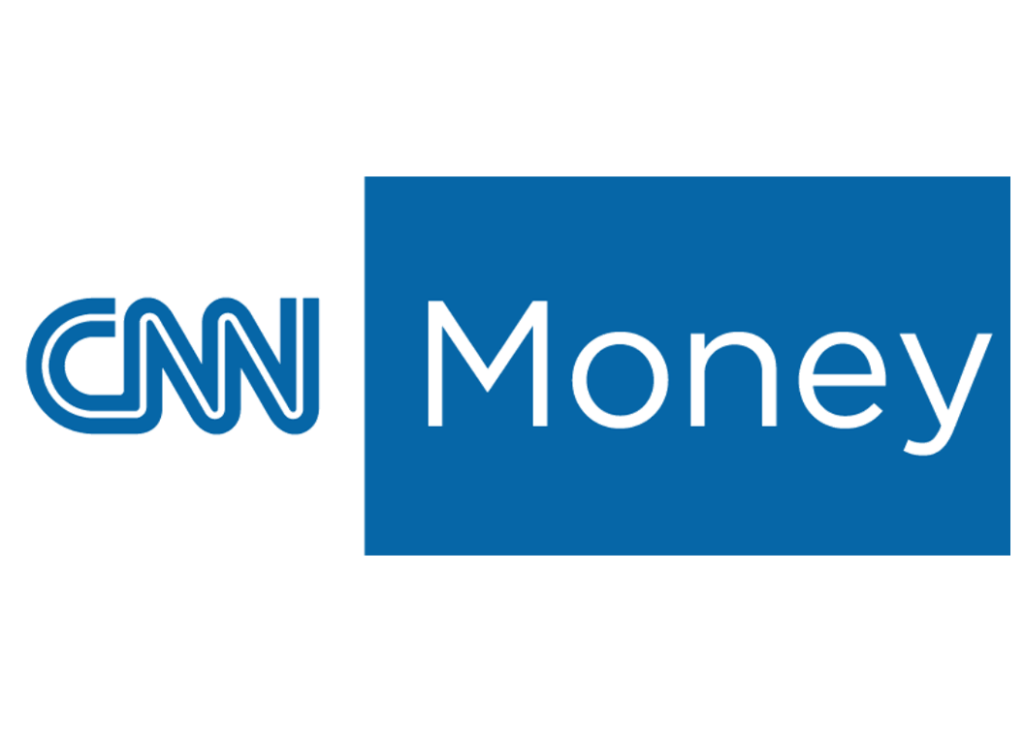Franchises account for approximately one out of 12 businesses in the US. They offer aspiring business owners the opportunity to use a franchise’s brand name and proven business model, while still having the freedom and flexibility that come from being your own boss.
Guidant Financial has over 15 years of experience in supporting franchisees as they start and grow their business, from connecting them with franchise consultants who help them find the brand that best fit their goals to offering them the funding they need to start and build their new venture.
How Do Franchises Work?
There are two parties in a franchise relationship: the franchisor (the business brand, e.g., McDonald’s, 9Round Fitness, etc.) and the franchisee (the individual(s) who will own and operate the business). After submitting an application and being approved, a franchisee pays the franchisor an initial fee, plus ongoing royalties. In return, the franchisor gives the franchisee the right to sell their products/services using their trademarked name(s), in addition to offering continued training, support, and access to their proprietary business system. Inside the industry, franchisors are known as “zors,” and franchisees are known as “zees.”
While franchises aren’t necessarily more likely to succeed than start-ups or buying an existing business (and they still require the same amount of hard work), they do offer a specific set of steps to build a business that’s been proven successful in the past. Some brands have stricter guidelines in how franchisees run their business, while others are more lenient. Initial franchise fees can also range from a few thousand dollars to a few million dollars for larger, well-known brands. It’s up to the franchisee to determine what kind of franchise brand best fits their personality and their goals.
How to Start a Franchise
There are several steps before a new franchise location can open its doors. Here’s a look at what’s involved in starting a franchise and how we can help along the way.
Step 1: Determine if franchising is right for you.
Franchising can be a great step into business ownership for some, but it’s not for everyone. Those who do best in franchising are usually those who like to follow the rules and ‘color in the lines.’ There’s a successful system already in place; it’s up to the franchisee to abide by the rules. Check out this franchising quiz to determine if franchising is a good fit for you.
Step 2: Identify the right franchise brand for you.
If you decide franchising is up your alley, the next step is to determine which franchisor brand fits your lifestyle and goals. Are you looking for a brand that will offer very specific steps or do you want to provide your own flair? What’s your main goal of franchise ownership: financial freedom, more flexibility, fulfilling a dream? The answers to these questions can help you determine what type of franchise will suit your needs.
Note: Industry knowledge is not a prerequisite in franchising. For example, if a restaurant franchise sounds enticing, but you don’t have food knowledge or restaurant experience, don’t kiss your dreams goodbye. Many franchises offer training to help franchisees with little knowledge in their field gain the skills needed to get started.
Guidant Financial partners with leaders in the franchising industry, so we can put you in touch with the right person to keep your journey moving forward. If you’re still not sure which franchise brand is right for you, we can connect you with a franchise consultant to help you weigh your options. If you already have the perfect brand in mind, we’ll set you up with someone who can tell you more about the brand and go over your qualifications.
Step 3: Apply to become a franchisee and pay the necessary fees.
Once you’ve selected your ideal franchise, you’ll need to ensure that brand has territory available in your area. You check territory by looking on the franchisor’s website, working with a franchise consultant, or contacting the franchisor directly. Franchisors often scope out territories in advance and generally only award rights to one franchisee per territory. This protects the franchisee from having direct competition from the same brand or oversaturating the market.
If territory space is available, you’ll need to ensure you meet the professional and financial qualifications set forth by the franchisor. For example, Dickey’s Barbeque Pit looks for franchisees that can develop, lead, and inspire a management team; strong entrepreneurial skills; and are active in their community. They also require their franchisees to pay a $20,000 initial fee and have a net worth of $300,000. The have a total investment of $280,819 to $481,819, including build-out costs, equipment, etc. Many franchisees rely on some level of financing to fill the total investment need.
During this time, you’ll also receive the Franchise Disclosure Document (FDD), which spells out the franchisee qualifications, fees associated with starting a franchise location, obligations of both the franchisee and franchisor, as well as more details on how the franchise runs and a look at its financial statements. Guidant’s business financing consultants are pros at unraveling Franchise Disclosure Documents and can help you understand what you need to know.
Step 4: Complete Training and Open Your Franchise
Once the franchisor has approved your application and you’ve signed the franchise agreement, you’ll be invited to attend training. Here you’ll learn the ins and outs of the franchisor’s business model, how to establish and run your business, and tips for marketing and acquiring customers. Once you’ve completed the training, you’re ready to begin taking steps to open your franchise: completing build-out requirements, hiring staff (if necessary), filing business licenses, and other paperwork, etc.
Guidant also offers business services to our clients to help you get your business off the ground. Whether you need to establish a business entity, find a bookkeeper, or are looking for payroll services, we offer access to discounted services through the industry’s leading providers.
How to Finance a Franchise
Starting a franchise still requires the same capital investment as any other business, which can range from a few thousand dollars for home-based franchises to millions for larger, more recognizable brands. Since few have that type of liquid money available, they pursue financing to meet their financial needs. As a leader in franchise financing, Guidant Financial has over 15 years of experience in help franchisees like you get the funding they need to open their doors. Here are some popular franchise funding methods we specialize in:
- Small Business Administration (SBA) Loans
These loans offer reasonable interest rates and long terms, making monthly payments affordable for franchise owners who are just starting. SBA loans can go up to $5 million in funding to qualified borrowers and are backed by the federal government, meaning the loan will still be repaid to the lender (up to 85 percent) if the borrower ever defaults. SBA loans do have stricter requirements though: 690+ credit score, a 20 percent to 30 percent down payment, a lengthy application, and the franchise brand must be on their approved SBA Franchise Directory, which is a list of brands that the SBA has deemed to be eligible for their funding). Learn more about SBA loans with our Complete Guide. - 401(k) business financing (also known as Rollovers for Business Start-ups or ROBS)
This method enables those with pre-tax retirement assets in retirement accounts like a 401(k) or IRA to use that money as franchise funding without incurring early withdrawal fees or other tax penalties. This option lets you continue to grow your nest egg through an investment you control. For the ROBS transaction to remain tax-free, certain rules and regulations must be followed, so it’s important to work with a qualified provider who has plenty of experience. Learn more about ROBS with our Complete Guide. - Unsecured Loans
Like credit cards, unsecured loans involve using a revolving credit line and paying back at will. Unsecured loans can be used for any business purpose and can offer up to $150,000 of funds without needing to use your house or other personal property as collateral. Interest rates on unsecured loans tend to be higher, so it’s best to use this on an as-needed basis. - Equipment Leasing
Leasing equipment can be a more affordable option for franchisees rather than buying equipment outright. This option allows franchisees to make monthly payments on new equipment
Ready to learn more? Pre-qualify for franchise financing today using our 2-minute assessment to determine which types of and how much funding you qualify for.
How to Grow Your Franchise
After you’ve opened your franchise and have been operational for at least a year, the next step is to think about growing your business to the next level – whether it’s a physical expansion to your current location, adding more products/services or employees to your current operation, or starting a new franchise location. Multi-unit franchising can be a lucrative path to success. Many franchisors offer incentives to multi-unit owners since they require less training and onboarding time.
To help you achieve your growth goals, Guidant Financial also offers growth capital so you can keep building your dream without eating into your hard-earned profits. These working capital loans are provided by the Small Business Administration but typically close faster (30 to 60 days) and require a smaller down payment (10 percent). Learn more about working capital loans to see if you qualify.
How to Sell Your Franchise
If and when you’re ready to exit the world of franchising by selling your location(s), Guidant offers services to help make your transition as easy as possible. The first step is to complete a business valuation to determine what your business is truly worth so that you can set a fair asking price. Once you’ve done that, you must find a qualified buyer who also meets the franchisor’s eligibility requirements.
Guidant’s Seller Suite can help with all of that and more. We’ll not only complete a thorough business valuation to suggest a fair asking price, but we can also provide the tools necessary to attract qualified buyers including marketing materials, a financing assessment, and a dedicated valuation specialist to walk you through the process and answer your questions.
Learn more about Guidant’s Seller Suite and how we can help you sell your franchise.
From cuisine to beauty to health care, franchises offer a lucrative path to business ownership for those who may not want the challenges that come with starting a business from scratch.
Thousands of aspiring entrepreneurs have fulfilled their dreams by investing in a brand that already has a successful business model and a recognizable brand. And with Guidant Financial at your side, you’ll be well on your way to successful franchise ownership. Ready to get started? Contact us today to start your franchising journey.

















